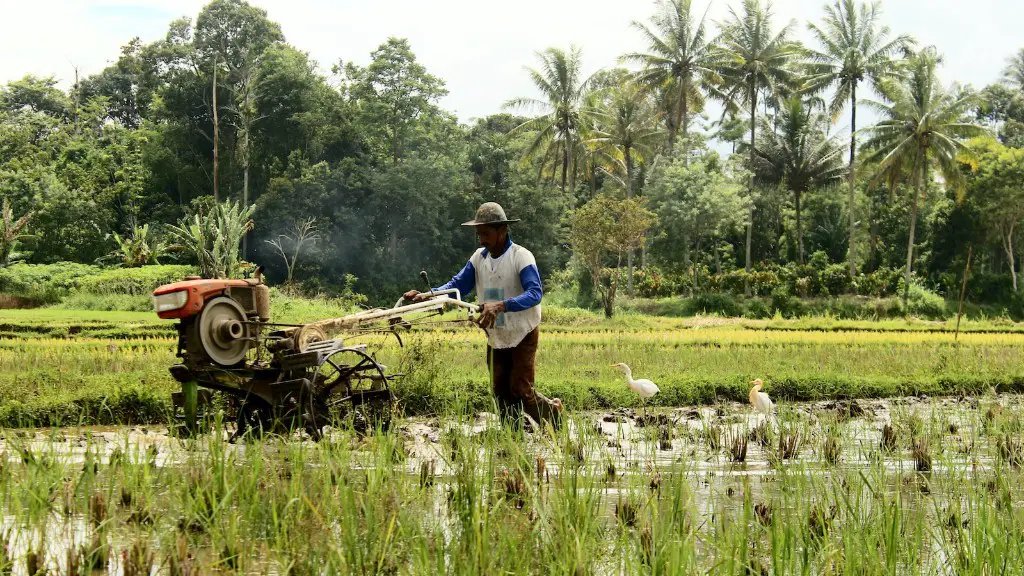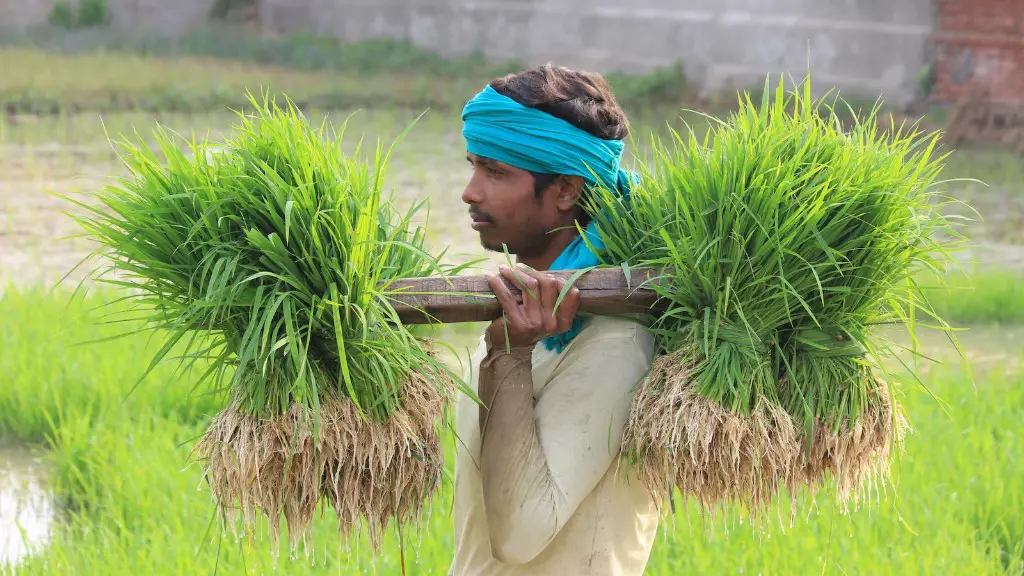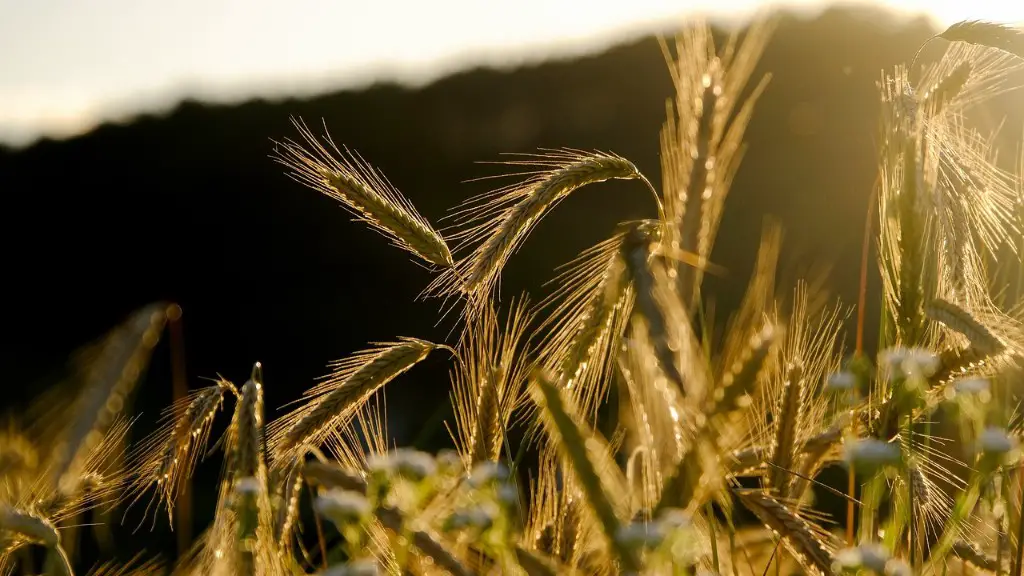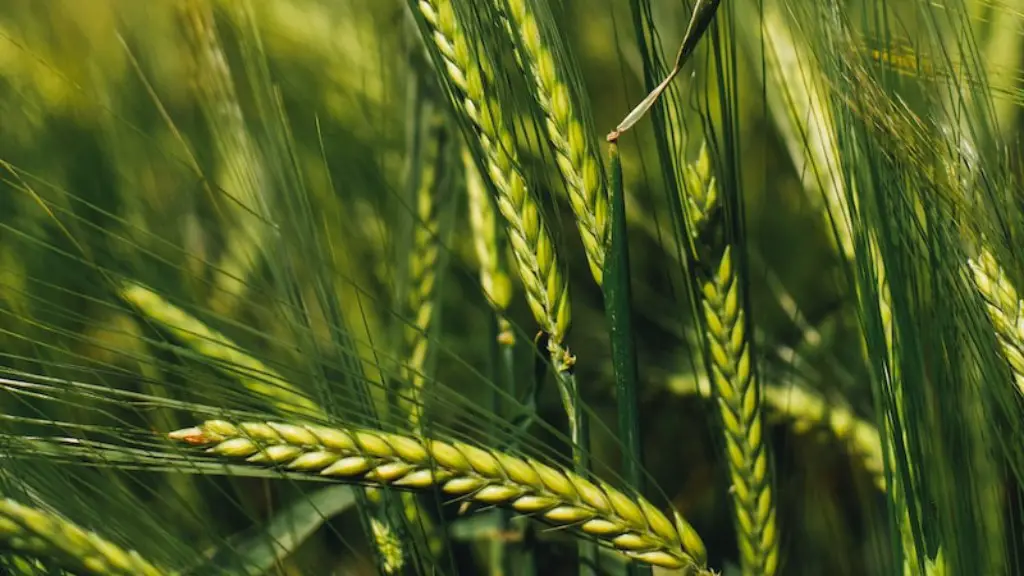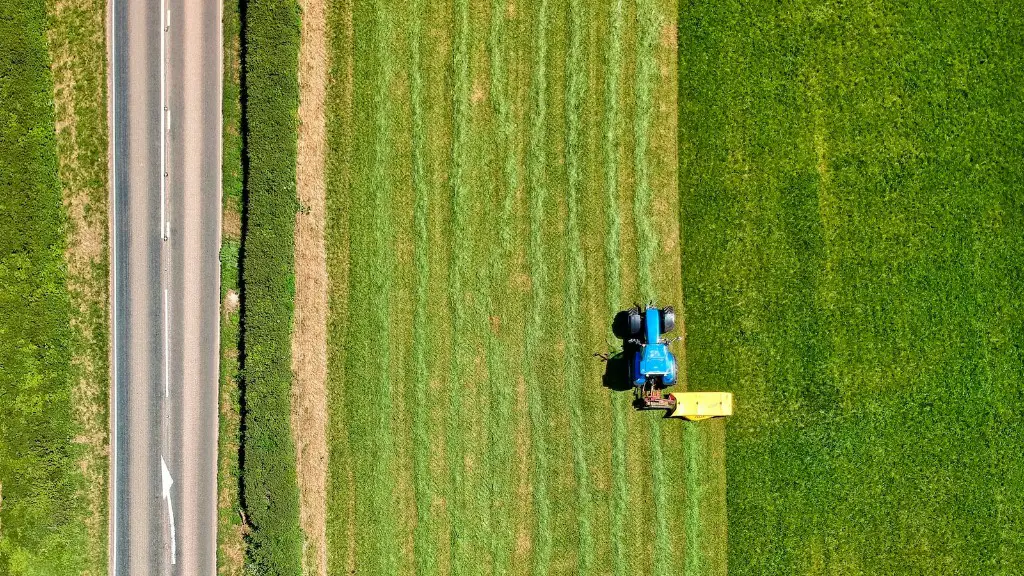Agriculture is an integral part of the human experience and is critical to our survival. It has long been the backbone of our food systems, providing us with the sustenance we need to survive. However, it has been identified as a key contributor to environmental degradation and climate change. To address these issues, agricultural systems must be made more sustainable. There are a number of ways this can be done, including incorporating renewable energy into farming, reducing chemical inputs and water usage, and utilizing efficient agricultural practices.
Farmers can make use of renewable energy sources such as solar and wind to power their operations. This would not only reduce reliance on fossil fuels, thus reducing on-site greenhouse gas emissions, but would also reduce operational costs for the farmer. In addition, renewable energy can be used to operate water pumps, meaning less energy is needed for water transport, and less water is consumed overall.
Chemical inputs to farming such as fertilizers, pesticides and herbicides are often used to increase yields and reduce pest damage. However, they can cause significant environmental damage and deplete precious resources. Farmers can reduce their reliance on these inputs by using natural pest controls such as animals, insects, and plant extracts, and employing regenerative agricultural practices such as crop rotation and soil management.
The amount of water used in agriculture can be drastically reduced by several methods. Farmers can use water-conserving practices such as mulching, drip irrigation, and controlled flooding, as well as water-harvesting methods like rainwater catchment and water table management. Additionally, water-preserving technologies such as underground pipes and water storage are becoming more widely available.
Another way to make agriculture more sustainable is to utilize efficient farming techniques. This includes utilizing precision agriculture, which uses technology to measure, monitor and adjust inputs to increase efficiency and reduce waste. Techniques such as hydroponics, aquaponics and no-till farming can also be used to maximize farm space, enhance soil quality and reduce water and energy usage.
Agricultural production systems can also be made more sustainable by adopting smarter farming models. This includes aspects such as farm management, crop and livestock management, marketing, and logistics. In implementing these systems, farmers can increase their profits and reduce their environmental impacts.
Finally, agriculture can also be made more sustainable by focusing on agriculture as a business. Farmers need access to resources, markets, finance and knowledge to be successful, and addressing these needs can enable them to create more sustainable farming operations. Furthermore, governments, businesses and non-governmental organizations can work together to provide resources to enable farmers to transition to more sustainable operations.
Renewable Energy Use in Agriculture
One of the most effective ways to make agriculture more sustainable is to use renewable energy sources. Renewable energy can help reduce on-site emissions of greenhouse gases and operational costs. Solar and wind power are two of the most popular renewable energy sources, and they can be used to power all aspects of a farm, from water pumps to tractors. They also can be used to generate electricity and charge batteries, making them an essential part of any sustainable agricultural system.
Using renewable energy has numerous benefits. It can reduce reliance on fossil fuels, reducing emissions and improving air quality. It also can save money by reducing energy costs for the farm. Furthermore, it can help address climate change and give farmers more control over their energy sources.
Renewable energy sources can also be used to power water pumps, providing constant, reliable access to water. This can help address water shortages and reduce water usage, as well as reduce energy consumption for water transport. Renewable energy can also be used to power machines in farms such as tractors, making them more energy-efficient.
There are also several technologies that can be used to increase the efficiency of renewable energy use. Solar photovoltaic cells, power generation systems and energy storage systems are just a few of the technologies available to improve the efficiency of renewable energy sources. In addition, some systems can be used to regulate and manage renewable energy, increasing the efficiency of energy use.
By incorporating renewable energy sources into their operations, farmers can reduce their reliance on fossil fuels, reduce operational costs and help address climate change. It is an essential part of any sustainable agricultural system, and using the appropriate technologies can ensure efficient and effective use of renewable energy.
Reducing Chemical Inputs
Chemical inputs, such as fertilizers, pesticides, and herbicides, are often used in agriculture to increase yields and reduce pest damage. However, these inputs can have disastrous effects on the environment, and can lead to soil degradation, water pollution, and reductions in biodiversity. By reducing the reliance on these inputs, farmers can improve their operations and make them more sustainable.
One of the most effective ways to reduce chemical inputs is to use natural pest controls such as beneficial insects and plant extracts, as well as farming techniques such as crop rotation and cover-cropping. These methods are not only more environmentally friendly, but they can also be cost-effective and improve soil health. Additionally, they can help reduce the need for chemical inputs, and make farming more sustainable.
No-till farming is another way to reduce chemical inputs and improve soil health. This technique reduces the amount of tillage, or the process of mixing and loosening the soil during planting. This reduces soil erosion and helps to improve soil structure and fertility, leading to higher yields and improved crop quality. It also helps to conserve water and increases the amount of organic matter in the soil, reducing the need for chemical inputs and making farming more sustainable.
Organic farming is another method that can reduce the reliance on chemical inputs and make farming operations more sustainable. By eliminating the use of synthetic fertilizers, herbicides and pesticides, organic farms can help to reduce the environmental impacts of farming. In addition, organic farming techniques increase biodiversity, providing habitat for beneficial insects and birds. Furthermore, organic farms can provide greater economic rewards for farmers due to their higher value.
By reducing the reliance on chemical inputs and incorporating natural pest control methods into agricultural operations, farms can become more sustainable. This will reduce environmental impacts, improve soil health and increase yields, providing economic and environmental benefits.
Reducing Water Usage
Water usage is a major issue in agriculture, accounting for almost 70% of all water consumption worldwide. To reduce water usage in farming, farmers need to employ water-conserving practices and technologies. An effective way to do this is to use water-harvesting methods such as rainwater catchment and water table management. This can help to drastically reduce the amount of water used in agriculture, increasing efficiency and reducing environmental impacts.
In addition to water-harvesting methods, there are a variety of water-conserving practices that farmers can employ. Mulching, for example, is one of the most effective ways to reduce water usage in agriculture. This involves covering the soil with organic material such as straw or grass clippings to help retain moisture and reduce evaporation. Additionally, drip irrigation and controlled flooding can be used to reduce the amount of water needed for crops.
Water-preserving technologies such as underground pipes and water storage systems are also becoming increasingly available. By using these technologies, farmers can capture and store water more efficiently, reducing waste and increasing efficiency. In addition, these systems can also help to reduce energy consumption, as energy is often used to pump and transport water.
Finally, precision agriculture is another way to reduce water usage in agriculture. This involves using technology such as sensors and satellites to monitor water needs and adjust irrigation amounts accordingly. This helps to maximize the efficiency of water use, reducing the amount of water needed for crops.
By utilizing these methods, farmers can drastically reduce the amount of water used in farming, making their operations more sustainable. These techniques can also help to increase yields and reduce environmental impacts, making them essential to any sustainable agriculture system.
Efficient Farming Practices
Using efficient farming techniques is another way to make agriculture more sustainable. This includes maximizing farm space and incorporating technologies such as precision agriculture and hydroponics to reduce water and energy usage. Additionally, adopting smarter farming models, such as those based on marketing, logistics and farm management, can help farmers maximize their profits and become more sustainable.
Hydroponics is an effective way to maximize farm space and reduce water usage. This involves growing plants in water, sand, or gravel, eliminating the need for soil. This can help to reduce water usage, increase yields, and reduce nutrient run-off and soil erosion. Additionally, hydroponics can increase crop quality and durability, reducing water wastage.
No-till farming is another efficient farming technique that can help to maximize farm space and reduce water and energy usage. This involves reducing the amount of tillage, which can help to increase the amount of organic matter in the soil, reduce soil erosion, and improve soil health. As a result, it can increase yields and reduce the need for chemical inputs.
Precision agriculture is an important tool for improving the efficiency of farming operations. This involves using technology, such as sensors or satellite images, to measure, monitor and adjust inputs. This can help to reduce water and energy usage and increase yields, while also reducing environmental impacts.
Finally, adopting smarter farming models can help to make farms more profitable and sustainable. This includes aspects such as marketing, logistics and farm management. By addressing these needs and incorporating the appropriate technologies, farmers can increase their profits and reduce their environmental impacts.
By utilizing efficient farming techniques and utilizing precision agriculture, farmers can increase their efficiency, reduce their environmental impacts, and maximize their profits. These techniques are essential to any sustainable agricultural system.
